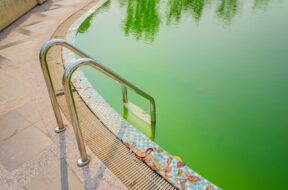
Want to learn more about algaecide? Read on to find out when to add algaecide to your pool maintenance routine and other helpful tips.
Your swimming pool pump is very important for your pool. The pump works closely with the pool filter in order to clean and filter the water in your pool. They form a “closed loop” that skims the water, grabs and removes debris, and cleans the water before it is injected back into the pool. This is why it’s so important to make sure you buy the right pool pump for your specific pool. Today on Pool Calculator, we dive deep into different pool pumps. We will take a look at each type of pump, and the benefits and downsides each of them has.
Learn how to prime a pool pump here!
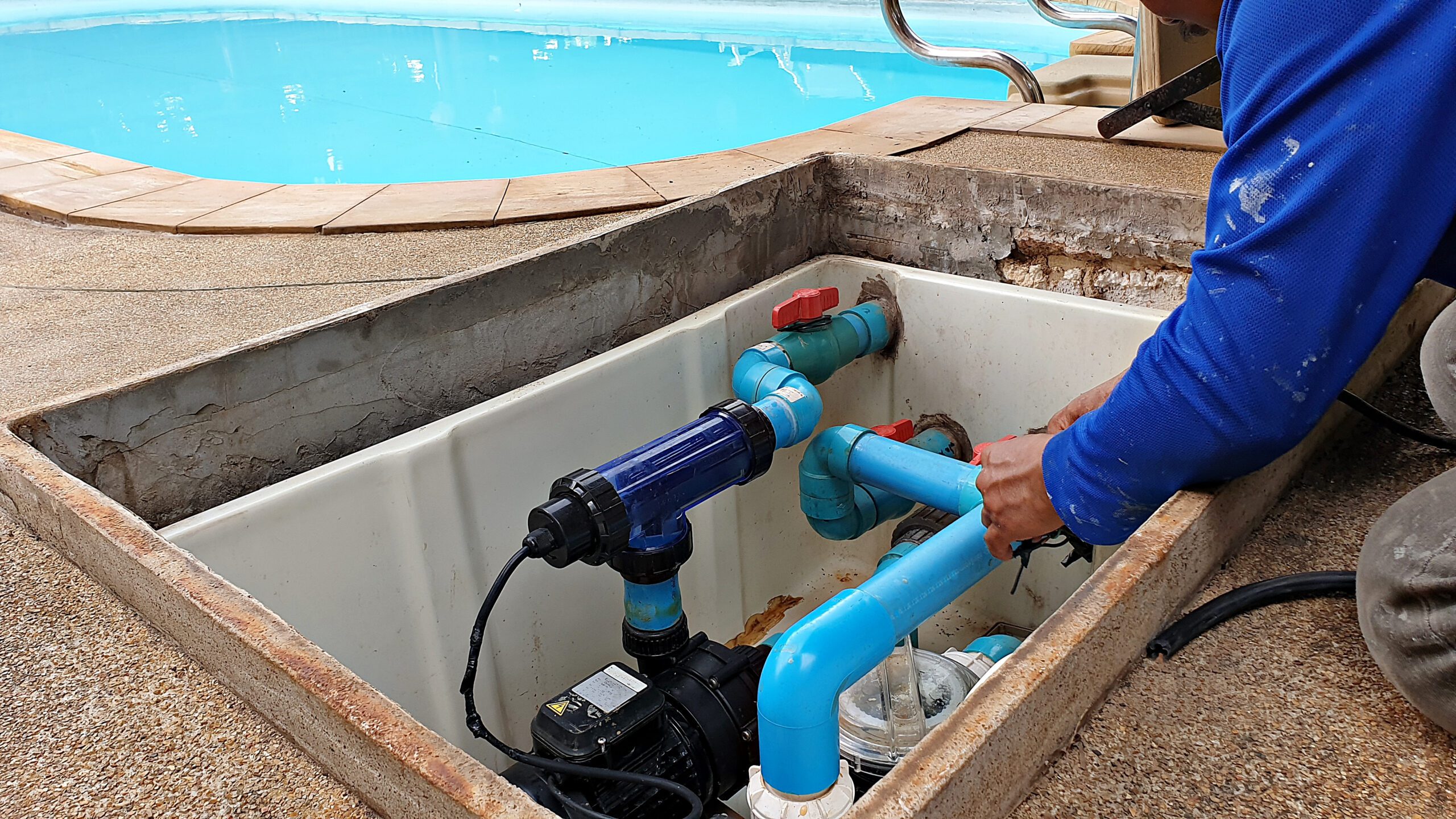
There are three types of swimming pool pumps. These include the following:
This is the most common type of swimming pool pump. This is because it is often the cheapest, and most basic of the three. Single speed pumps, not surprisingly, only operate at one speed. This is the reliable pump that has become a staple for swimming pools over the years.
One of the key downsides of single speed pumps is they lack the energy and money saving capacity of other pumps. This is because there is only one speed, with no lower speed available when your pump isn’t that large of a necessity. This means that your pump is a large energy user, and often is one of the top energy-using components of your house, just behind air conditioning and heating.
Two speed pumps are a lot like single pool pumps. However, they are able to operate at both full and half speed. This is a distinct advantage because sometimes you need your pump, but sometimes it can operate at a lower level. Also, a lower power setting means your water is in the filter longer and gets filtered better overall. This pump provides more versatility and can save you real money over time.
With this advantage does come a disadvantage; upfront costs. These two speed pumps are significantly more costly than single speed pumps. This is due to multiple settings for different situations, and those overall cost savings you will see over time.
Variable pumps are considered to be the “beasts” of the swimming pool pump world. These are a newer idea that allows for the pool user to pick the speed at which it runs. This means that you can “lock in” to a specific speed or energy level. This level will fit your current needs and can change to fit your needs as they change over time. In turn, this will save tons of energy costs over time. This is because your pump will only need to work as hard as you need it to, adding up to thousands of dollars in savings.
However, like all high-tech pool tools, variable pumps are expensive. This is a couple tiers up on the cost scale from single and double pumps. This higher cost can be largely offset by the energy savings you will see over time. Many have reported making up the higher upfront costs for variable pumps in only a few years. This means your investment is likely worth it, and you could be saving a lot of money in the long-run.
Check out the Pool Calculator app!
Overall, pool pumps are available in a wide range of designs. Each of these designs is specific to a certain pool user. This means there is no one “right” answer, and largely will depend on your budget and personal needs.
Pros: Cheap, reliable, widely available. “Does the job expected”
Cons: High energy costs, low versatility overall.
Pros: “Middle ground” More versatile, saves more energy than single pumps.
Cons: More costly than single pumps. Not super cheap nor super versatile (compared to single and variable pumps)
Pros: Most versatile and efficient pump you can get. Many speeds and settings for “perfect” pump for you.
Cons: Highest initial costs. These pumps are significantly more expensive than single or two speed pumps.
For another buying guide, this time on pool vacuum cleaners, click here!

Want to learn more about algaecide? Read on to find out when to add algaecide to your pool maintenance routine and other helpful tips.
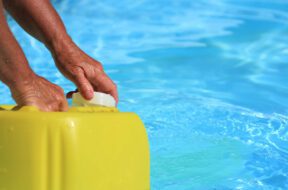
In this quick guide, we’ll answer the question “can you over shock a pool” and unveil the factors to consider when shocking a pool.
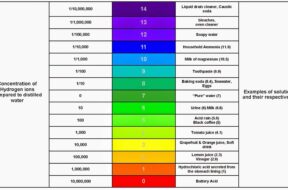
Maintaining both pH and total alkalinity in your swimming pool is important for keeping your pool properly sanitized and non-corrosive. Total alkalinity is to pH what cyanuric acid is to free chlorine. Total alkalinity stabilizes pH levels. The ideal pool pH level is 7.4 to 7.6. The ideal total alkalinity level is 80 to 120 ppm.
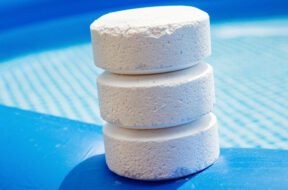
The Association of Pool and Spa Professionals recommends free chlorine levels for both swimming pools and hot tubs be kept between 2.0 and 4.0 ppm. However, the Center for Disease Control recommends free chlorine stay above 1 ppm in pools and 3 ppm in hot tubs.